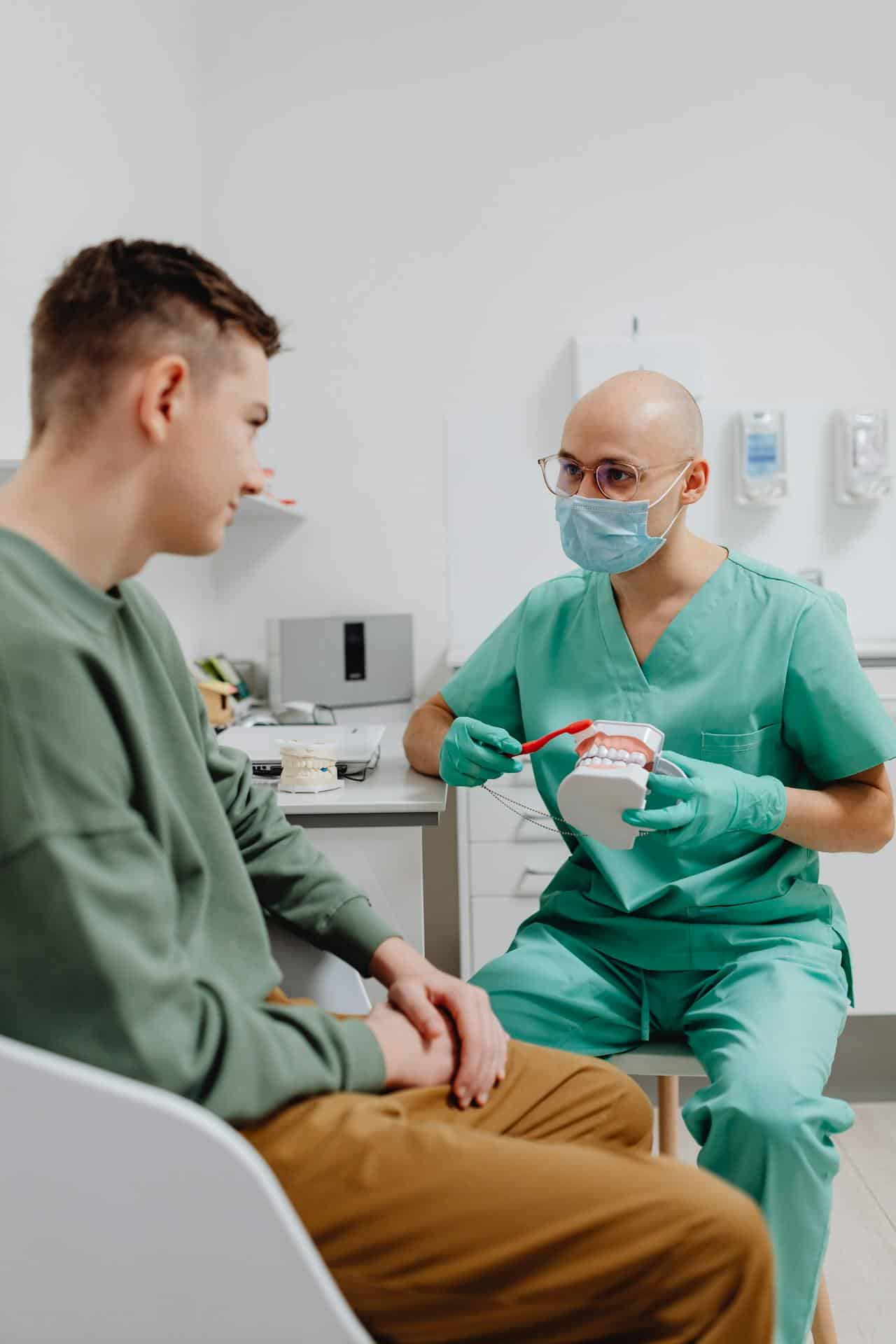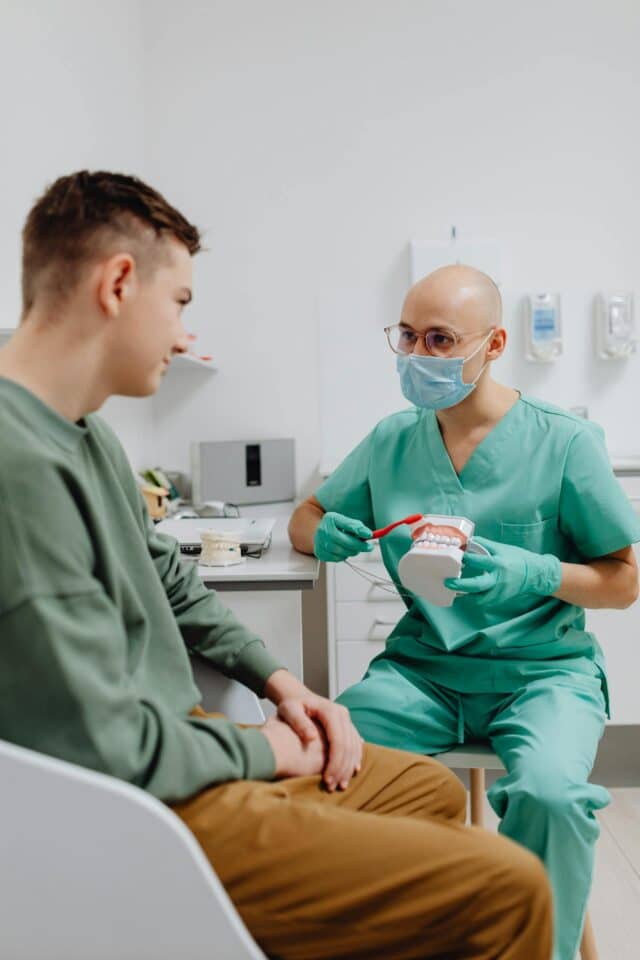
Dental implants are a remarkable solution for people who have lost teeth. They are durable, long-lasting, and offer a natural look and feel. However, like any medical procedure, dental implants come with potential risks. One of the more concerning complications is a dental implant infection, which can occur around the implant site. Although this is not a common issue, it can lead to discomfort, further complications, and, in severe cases, the failure of the implant.
In this guide, we will discuss the key signs of infection, how to treat infection around dental implants, and the steps you can take to prevent it from occurring. Understanding these factors will help you maintain your dental health and keep your implants functioning properly for years to come.
How to Know if You Have an Infected Implant
Awareness of the signs of a dental implant infection is crucial. While some symptoms might be subtle, others can be apparent. Knowing what to look for can help you catch the infection early.
An infection can occur immediately after surgery or even months or years after the implant has been placed. When bacteria invade the area around the implant, it can lead to inflammation and infection. This can compromise the implant’s stability and potentially lead to implant failure.
Signs Your Dental Implant Is Infected
Several symptoms can indicate that you have an infection around your dental implant. Some may be mild at first but could worsen without proper care.
Unexplained Bad Breath
Bad breath or an unusual taste in your mouth could be an early sign of infection. This happens when bacteria build up around the implant, producing a foul odor. If regular brushing and flossing do not resolve bad breath, it may indicate a deeper issue, such as an infection.
Pus Surrounding the Implant
The presence of pus around the implant is a clear sign that an infection is present. Pus forms when the body is fighting off an infection. It is composed of dead white blood cells, bacteria and tissue debris. If you notice pus around the implant area, it’s essential to contact your dentist immediately.
Bleeding
Some minor bleeding is normal after dental implant surgery, but ongoing or spontaneous bleeding can signal an infection. If your gums are bleeding consistently or without cause, it might be due to inflammation caused by an infection.
Fever
Fever is a sign that your body is responding to an infection. While a slight temperature rise is expected after surgery, a persistent or high fever is a red flag that something is wrong. If you experience a fever and other symptoms of infection, seek professional help immediately.
Sore, Swollen or Red Gums
Swelling and soreness are expected right after dental implant surgery. However, if these symptoms persist, worsen or occur long after the implant has been placed, it may indicate infection. Redness, especially around the implant, is a typical sign of gum inflammation caused by bacteria.
Loose Implant
A dental implant should be firmly embedded in the jawbone. If you feel that the implant is loose or wobbly, it could be a sign of infection. Bacteria can weaken the surrounding bone and gum tissue, leading to the loosening of the implant. This requires immediate attention to prevent further damage.
How to Avoid an Infection After Getting Dental Implants
Preventing infection is easier than treating it, so it’s essential to take steps to minimize your risk after getting dental implants.
- Follow Your Dentist’s Instructions: Your dentist will give you specific guidelines after your surgery. This may include recommendations on cleaning the area, avoiding certain foods and taking prescribed medications.
- Maintain Excellent Oral Hygiene: Brushing and flossing regularly is crucial in preventing bacteria buildup around the implant. Be sure to use a soft-bristled toothbrush and follow your dentist’s recommendations on flossing.
- Use an Antibacterial Mouthwash: Your dentist may recommend an antibacterial mouthwash to reduce the risk of infection.
- Avoid Smoking: Smoking can impair healing and increase the risk of infection. It’s best to avoid smoking during the healing period and, ideally, give it up entirely to improve overall oral health.
- Attend Follow-up Appointments: Regular check-ups with your dentist are crucial for monitoring the healing process and detecting any signs of infection early.
How To Treat Infection Around Dental Implant
If you suspect an infection around your dental implant, it’s vital to seek professional help promptly. The sooner treatment begins, the better the chances of saving the implant and avoiding further complications.
Antibiotics
Antibiotics are often the first line of defense when treating a dental implant infection. They can help eliminate the bacteria causing the infection, reduce inflammation, and prevent it from spreading. Your dentist may prescribe or administer oral antibiotics directly into the infected area.
Mechanical Cleaning
A thorough mechanical cleaning may be necessary to remove bacteria and debris around the implant. This process involves scaling and root planing, which cleans the area above and below the gum line. Special instruments remove plaque and bacteria to reduce the infection and promote healing.
Surgery
If the infection is severe, surgery may be needed to treat the area. Surgical intervention typically involves lifting the gum tissue to access the implant, cleaning the infected area, and possibly removing damaged bone. Sometimes, bone grafting may be necessary to restore lost bone tissue.
Implant Removal
Removal of the implant may be necessary. This is a last resort, but if the infection has caused significant damage to the bone and surrounding tissue, the implant may need to be removed to allow the area to heal. Once the infection is resolved, your dentist will discuss options for replacing the implant.

Choose Archpoint Implant Dentistry for Expert Care and Long-Lasting Dental Implants
Archpoint Implant Dentistry understands that dental implants are a significant investment. Our team of experienced professionals is dedicated to providing the highest level of care, from the initial consultation to recovery and beyond. We use the latest technology and best practices to ensure your dental implants are placed with precision and minimal discomfort. This effectively reduces the risk of complications such as infection.
Whether you need new dental implants or expert care for an existing one, Archpoint Implant Dentistry is here to help. Contact us today to schedule your consultation.








